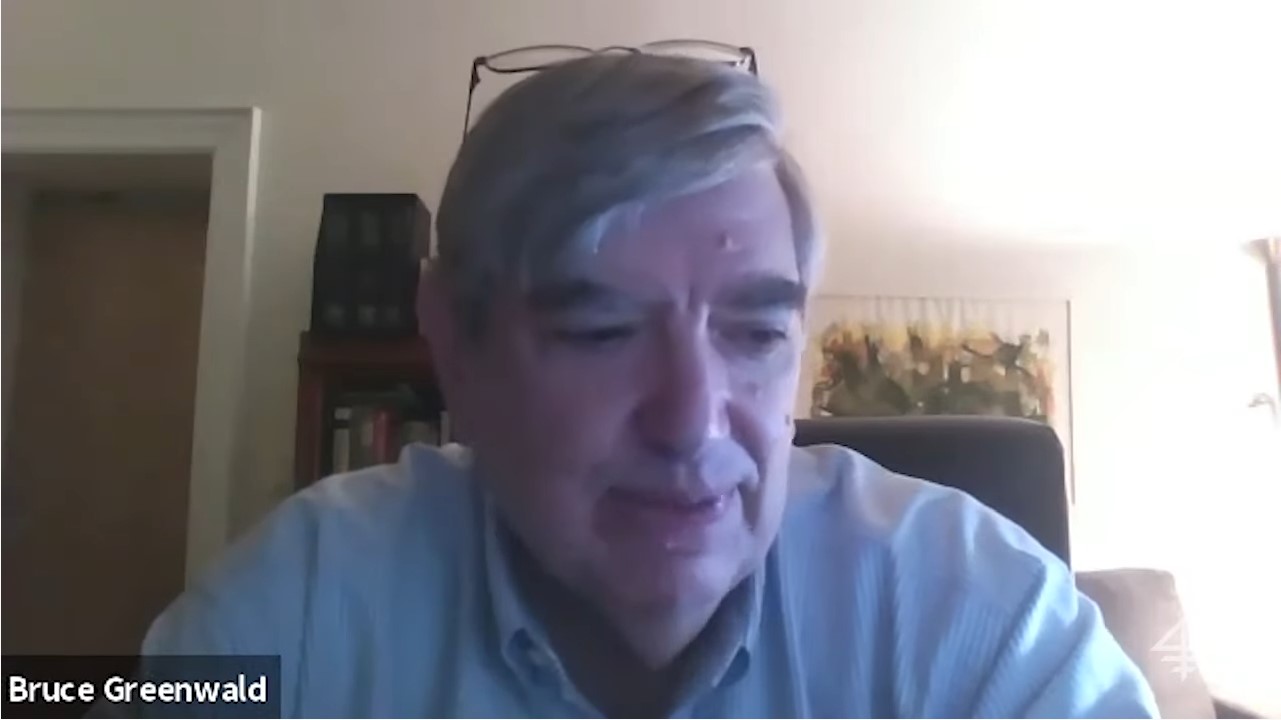At the 13th Annual Columbia China Business Conference in April, Li Lu and Bruce Greenwald discussed the Investment process Li uses to find undervalued opportunities and companies that he believes tick all the boxes he requires for new investments.

In the first part of the interview, Li explained that he looks for companies with an enduring competitive advantage. These companies are incredibly rare, and finding them takes a lot of work. But when an investor finds such an opportunity, the returns can be fantastic. One only has to sit and watch the company grow, if it has an enduring economic moat.
Finding the right investments
Greenwald asked Li if he had a unique process or approach for finding these kinds of investments. The value investor replied that he does not spend his time studying how other people make their money. Instead, the team at his hedge fund, Himalaya Capital, spends most of their time “studying industries and specific companies.”
He went on to add:
“We’re looking for the ones that are already successful and try to answer what makes them that way and if that success can be continued. Sometimes we have answers, but a lot of the time we don’t and we continue to study them until we have an answer. One thing that is important is intellectual honesty. Knowing what we really don’t know and what we do. In other word,s if you claim a circle of competence, you have to understand the edge of it. You have to be very honest with yourself. We insist on knowing a particular business inside and out, to the point where we are able to predict the outcome in the next ten years.”
Sometimes it is not possible to develop this understanding of a business immediately. As such, Li and the team may spend years watching a business before they can build enough confidence to initiate a position. To they want to build enough confidence to be comfortable acquiring the position even if it continues to drop in value. “That is the definition of whether we understand them,” Li summarised.
Greenwald asked the value investor if he pays much attention to the market level and overall equity valuations. Li said the team at Himalaya only studies the market when it is at an “extreme” level. The rest of the time, the team focuses on finding good ideas rather than watching what other investors are up to.
What’s more, Li said he does not believe that “history repeats itself,” so rather than trying to “guess the patterns of history,” the firm focuses on selecting companies that can “live through thick and thin.”
He went on to add, “Whatever the environment, business will continue and somebody will do well. We want to invest in companies that are capable of dealing with those extraordinary set of uncertainties, and I guess we’ll be doing fine.”
The quality of management
On the topic of management, the value investor noted that it is important to consider the quality of a management team for most companies. A high-quality management team, which has a strong track record of sensible capital allocation decisions, will make a “big difference” to a company’s performance over the long-term, he argued.
However, there is going to be a small subset of companies where “management doesn’t matter a lot.”
These are the best companies where the business has a “dynamic of its own,” which means anyone can run it.
Unfortunately, these types of companies are so rare “you can probably count them on one or two hands,” Li stated.
He went on to explain that as every company and situation is different, investors really need to study each situation in-depth and “ask appropriate questions” to build a detailed understanding of business, the quality of the management, and its competitive advantage.
“You want to understand them enough so you can predict the next 10 years even with ups and downs in the macro-environment,” Li added.
Finding great companies is just one side of the equation. Successful investors require the right temperament as well. Not all investors possess the right temperament, which can be a significant drawback:
“To succeed, one needs a certain temperament and a certain understanding of human nature. Investment returns will mirror the actual business return and we know that real companies don’t change hour to hour, day by day or even month to month. It takes years for them to rise and to fall. You should expect your investment results to come slowly and gradually over a long period of time.”
In the real world, Li added, the ups and downs of the market can be quite extreme and testing. If an investor does not have the right temperament to ride out these ups and downs, they may struggle.
Furthermore, if investors are driven by anything other than a “deep understanding” of the companies that they own, they will be “tested” in periods of uncertainty.
“The financial markets seem to be there to catch human weaknesses,” Li stated. “If you don’t understand something and just pretend to, you will be busted at some point,” he went on to add.
